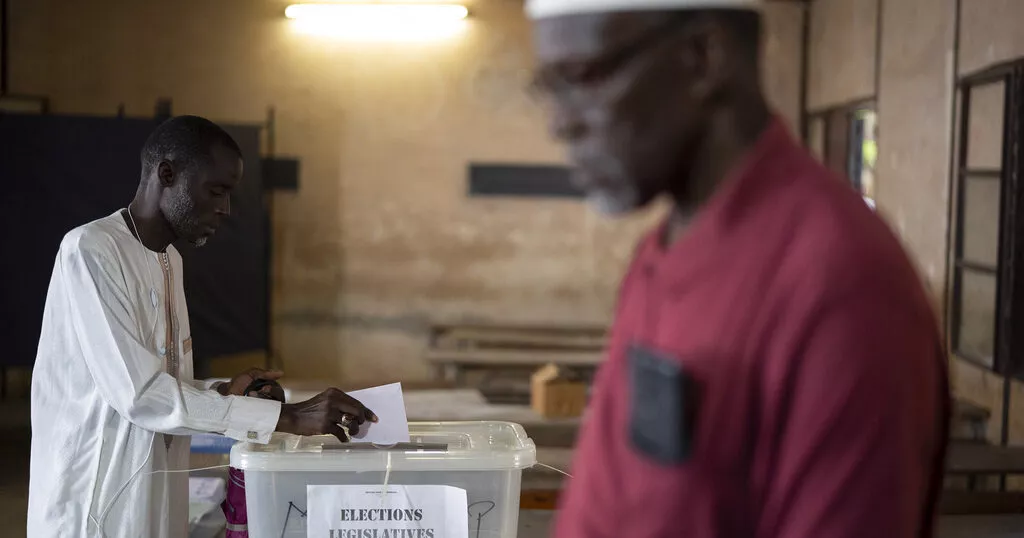Senegal’s legislative elections: Prime minister calls for retaliation against “attacks” on supporter
3 min read

Senegalese voters are heading to the polls this Sunday for a crucial legislative election, following the dissolution of the previous National Assembly by President Bassirou Diomaye Faye in September. The election marks a key moment in the country’s political landscape, as the results could determine the future direction of President Faye’s government and influence his reform agenda.
The election is especially important for Ousmane Sonko and his party, Pastef (Patriotes du Sénégal pour le Travail, l’Éthique et la Fraternité). The party is pushing to secure a majority in the National Assembly to back reforms that Faye and Sonko have outlined. However, the run-up to the election has been marred by escalating tensions, violence, and accusations of political attacks, which have overshadowed the campaign.
A particular flashpoint came when Prime Minister Sonko, a key figure in the Pastef party, urged his supporters to “avenge” what he described as attacks on his party members by supporters of Barthélémy Dias, the mayor of Dakar and one of his main rivals. Sonko’s call for retaliation has sparked fierce reactions, with critics, particularly from the opposition, condemning it as an incitement to violence. They argued that such statements risk inflaming an already tense political climate, with some even accusing Sonko of inciting murder.
In the aftermath of the statement, violent clashes have erupted at several political events, with both Pastef supporters and those backing Dias accusing each other of attacking their rallies. These incidents of violence have raised serious concerns about the safety of voters and the fairness of the election, as well as the potential for further unrest.
In an attempt to defuse the situation, President Faye recently called for calm, urging all political actors to exercise restraint. Faye’s comments reflect growing concern within the government about the potential for the violence to spill over into the election itself, and the risk of further destabilizing the political environment in Senegal. The President’s call for peace comes at a critical juncture, as Senegal has long been viewed as a beacon of democratic stability in West Africa. However, this year’s election has exposed deepening political divisions and heightened fears about the integrity of the electoral process.
The violence and rising tensions have highlighted the polarized state of Senegal’s political landscape. On one hand, Pastef supporters are determined to challenge the dominance of the ruling party, with Sonko positioning himself as a leader of reform. On the other hand, Mayor Barthélémy Dias, who is a member of the opposition, has accused the ruling government of attempting to suppress his party’s influence. These political divides have resulted in a bitter rivalry, with each side accusing the other of undermining democratic values.
Despite these challenges, many Senegalese citizens are determined to exercise their democratic rights and cast their ballots. The election is expected to determine the composition of the next National Assembly, which will play a crucial role in shaping the direction of the country’s policies, particularly in relation to President Faye’s proposed reforms.
As the country heads to the polls, both local and international observers are closely watching the situation, hoping that Senegal’s long-standing reputation for peaceful democratic transitions will hold. However, with the heightened tensions and the potential for violence, the coming days will be crucial in determining whether Senegal can maintain its tradition of peaceful elections or if the country will face a more turbulent period ahead.
The situation is still fluid, with more incidents of violence expected as the election draws nearer. With the stakes high for both the ruling government and the opposition, the outcome of Sunday’s election could have far-reaching consequences for the political future of Senegal and the stability of the West African region.